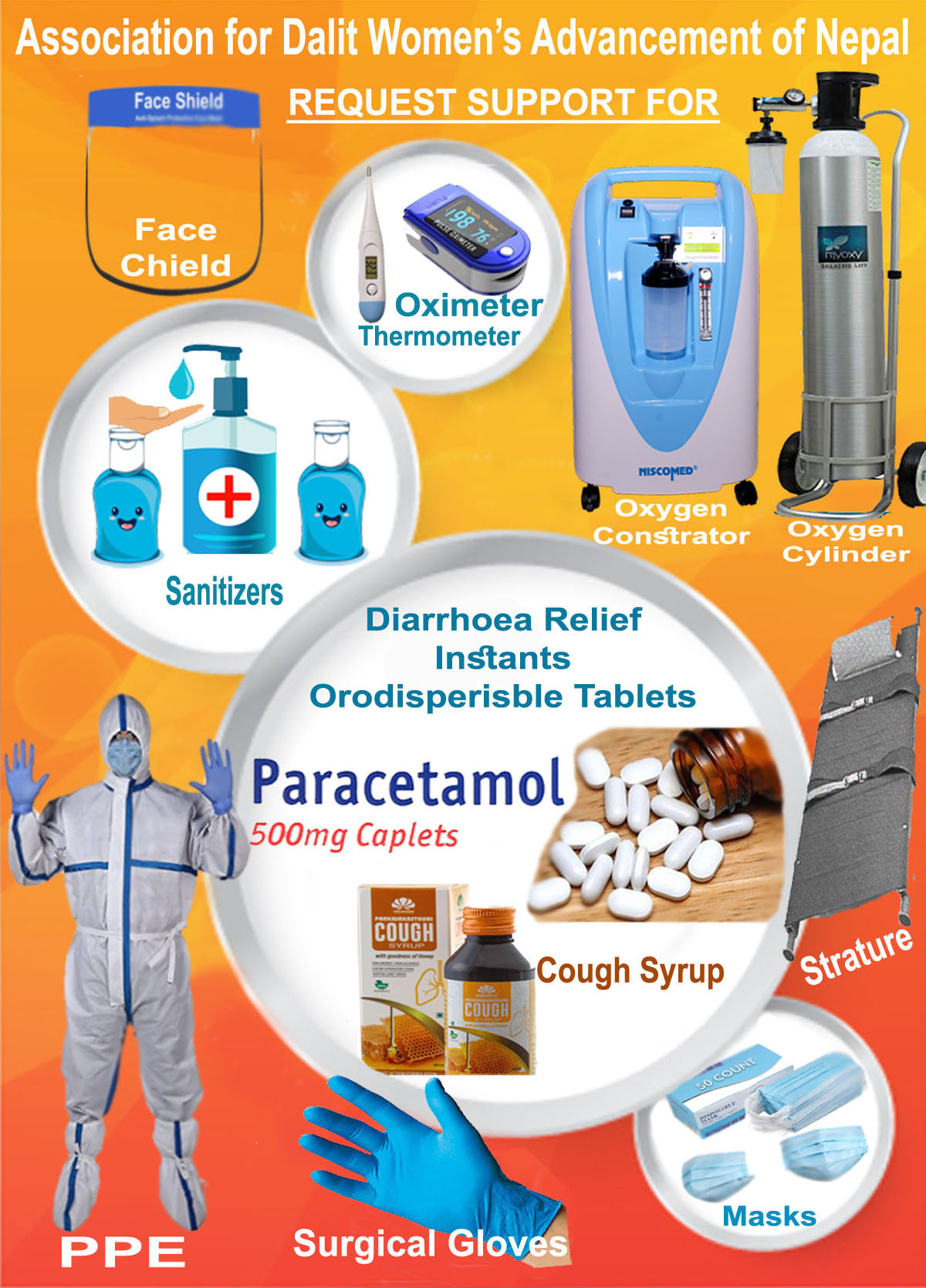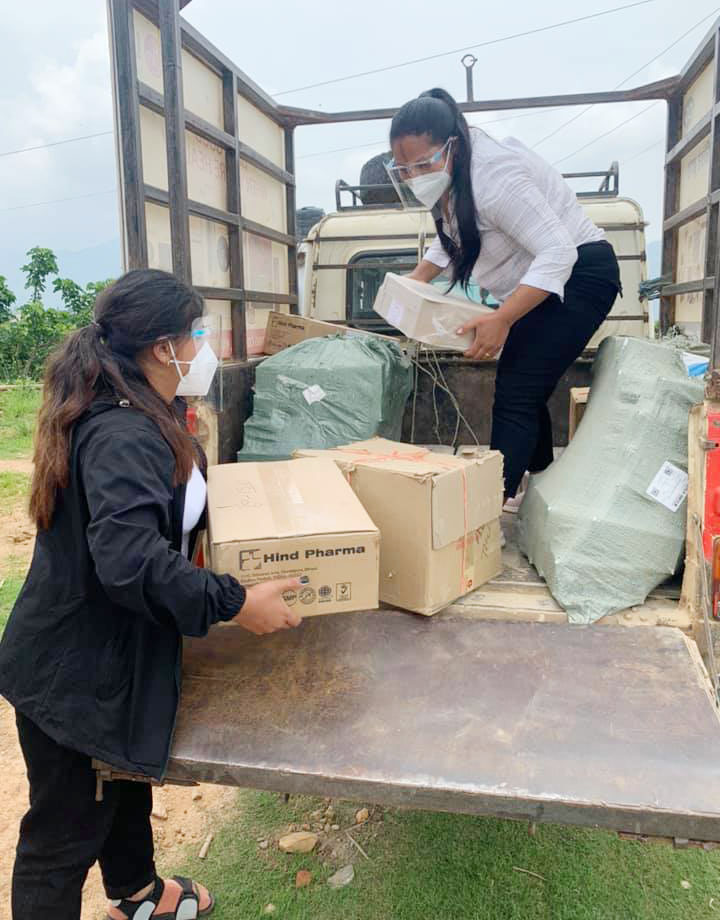



The novel coronavirus (COVID-19) pandemic has affected the developing and agriculture based country, Nepal. 73.6 % female are engaged in agriculture. (Central Bureau of Statistics, Population Monograph, CBS, KTM, 2014). Various adverse impacts of COVID-19 can be seen in terms of human casualties and physical and mental health on the poor, marginalized women of the rural areas. Unfortunately, the economic and food insecurity shocks generated by country-wide lockdowns may inadvertently undo much of the progress made by marginalized communities, especially women. ADWAN has deeply focused to very poor and daily wage working Dalit, marginalized women of Gorkha and Chitwan districts who are in food crisis and in need of safety items because the situation has been worsening with the uncertain extension of lock down. At its start, the daily wage earners in informal sectors were seen as the most vulnerable groups because they used to fulfill hand to mouth problem by daily wage earnings. Now they do not out to work for wages in closure. They are going through starvation. The second variant of COVID 19 has hit rural people most. The poor, illiterate, marginalized women become the direct sufferer of the pandemic. At the critical condition, ADWAN has decided to distribute food items and a package of mandatory safety items with some generic medicines.
Dalit women farmers in Chitwan who used to earn income by selling vegetables are out of work and cash now. The virus has caused disruptions of the typical opportunities, supply chains, and markets that women often turn to for additional income for food purchasing. They are going through the limitations such as the closure of local transportation facilities and street markets. Consequently, they could not be able to sell the products and earn cash to use for food, and other basic needs. Due to time restrictions and strict social distancing guidelines, these women are unable to work in the field and leading to further challenges in achieving agricultural prosperity. These economic inaccessibility pushes women into domestic violence, physical and mental torture.
Viewing this economic crisis, ADWAN has planned to arrange some relief actions and respond to the needs that it has identified. These are the following planned activities to provide economic and health related relief to Dalit and marginalized women of Chitwan.
- Awareness raising sessions in small groups during the crisis and lockdown: All members live together in family with the scarcity of food and source of income. They are going through food crisis without labor wok. Most of the women’s husbands work as driver in transport. The continuous lockdown causing unemployment leads to food and health crisis in Dalit community. Survived by daily wage earnings or women’s subsistence economy, they suffer most in any sort of disaster, pandemic.
- Distribution of food items for economic relief: In the second variant of COVID 19, the government has not provided relief in its own initiation. Nepal government has made a protocol for relief distribution through one door system. ADWAN has planned to provide relief package to the remote, rural poor Dalit women of Chitwan in coordination with the local government. The ward office Rural Ratna Nagar municipality (Chitwan) do have survey data with the list of identified vulnerable people. Accordingly, it has decided to follow government’s protocols regarding COVID 19., The rural, poor, marginalized women of ward no 16 of Ratna nagar are suffering from economic crisis. They are living by the side of the Narayani river. They work in the hotels of Souraha as cleaner, and assistants in kitchen. Dalit women due to limited quantity of vaccines against COVID 19 will be out of the reach from vaccines and proper medical treatment. The severity of COVID cases caused by low level of oxygen and worsening condition, a number of patients got unable to have treatment in the hospital, health posts, under the guidance of medical professionals and health workers because medical hospitals are insufficient for treatment officially. Thus, ADWAN has planned to work in ways-to provide precautionary and preventive information on symptomatic and asymptomatic COVID 19 including gender based violence, and the other is to provide relief of food and medical kit which would be a support to the most vulnerable women.




























